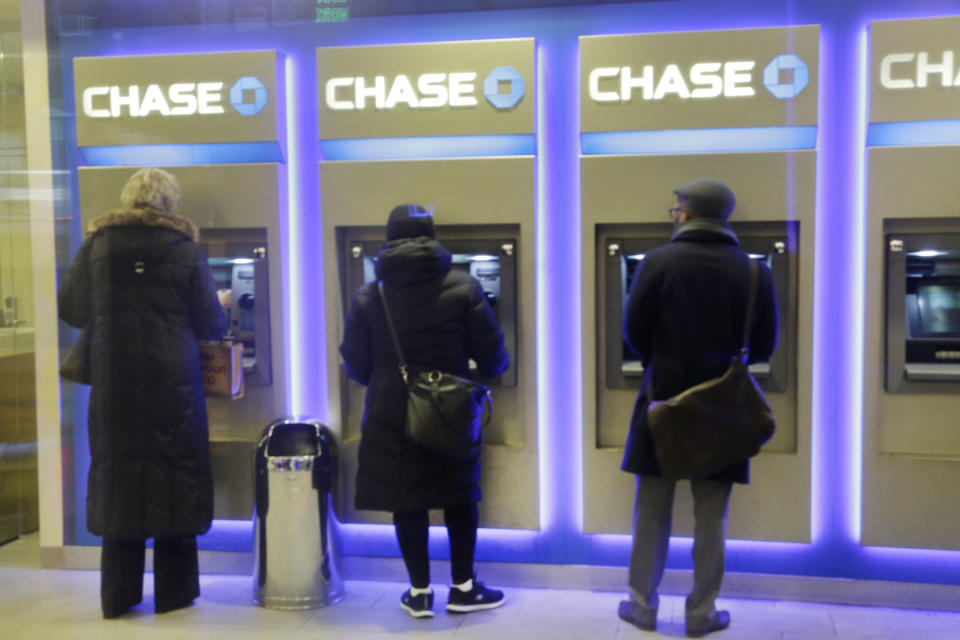How to get the bailouts right
Something unprecedented is coming. Congress has no choice but to hold its nose and approve bailouts for giant companies such as Boeing, Marriott and other hotel companies, all U.S. airlines and perhaps hundreds or thousands of other companies suddenly under severe financial stress.
The Trump administration has proposed $50 billion in loans for reeling airlines that suddenly have no passengers. Other travel industry firms are in the same sinking boat and lining up for similar aid. There will be hundreds of billions of dollars in aid for smaller businesses, and outright checks for ordinary Americans. Congress must approve all of this and probably will by April.
But there are right ways and wrong ways to do bailouts, and the 2008 financial wipeout was a crash course in what to do wrong. Back then, officials in the Bush administration, and the Obama administration after them, knew they had to flood big banks with money to keep the financial system from seizing up. Banks are the circulatory system of the economy, and without them, the patient is dead. But the effort to save the financial system back then was so frenzied that policymakers orchestrating bailouts and Congress passing the necessary laws overlooked many safeguards.
Insurance giant AIG, which would have collapsed without the biggest private-sector bailout of the financial crisis, still awarded $454 million in bonuses to employees for 2008, with Congress powerless to intervene because it put nothing in the bailout law to prevent such payouts. In 2009, Wall Street banks literally saved by U.S. taxpayers issued $20 billion in bonuses to traders and executives, a 17% jump over 2008. Wall Streeters justified the bonuses by saying they still had to pay for talent in a competitive market. As the unemployment rate spiked to 10%, millions of Americans felt justified outrage and demanded to know, where was the bailout for the little guy?
Bailout lessons
An underlying assumption of the 2008 bailouts was that if Washington saved the companies, the companies would save the jobs. But they didn’t. It would have been far worse if banks and insurance companies and automakers had gone out of business, but the number of unemployed still doubled from 2007 to 2010, to 15 million people, with millions more squeaking by on fewer hours and far less pay. It took more than six years for employment to reach pre-recession levels, the slowest labor-market recovery in modern times. Congress did pass other safety-net programs, but most of them didn’t put people back to work, badly tainting the bailouts for businesses.

Those lessons could lead to better bailouts today. Congress is already considering cash payments to ordinary Americans of at least $1,000 as a first step, before companies get a dime. While putting money in people’s pockets, however, that won’t necessarily protect jobs. Better Markets, a nonprofit financial-industry watchdog, argues for “Main Street” bailouts in which federal aid to companies goes first toward keeping payrolls intact and covering all employee wages and benefits. That’s not what companies normally want bailout money for. Instead, they want help covering fixed costs such as debt payments, rent and equipment-related expenses, since failing to make those payments will send them into bankruptcy. Better Markets says bailouts must cover both, or neither.
Democratic Sen. Elizabeth Warren of Massachusetts has issued a list of 8 requirements for any corporate bailout. They include a requirement to keep all employees on the payroll, along with prohibitions on share buybacks, dividend payments to shareholders and executive bonuses. As a presidential candidate, Warren’s populist calls for radical reform fell flat with voters, leading to an early withdrawal from the race. But these bailout provisions, supported by many Democrats, seem like no-brainers Republicans in Congress can only oppose at their peril.
President Trump keeps saying he expects a swift recovery from the coronavirus recession, once the virus itself is under control. What Trump and other Washington policymakers do now will determine the speed of that recovery and who will be part of it. If they want workers to come roaring back, the time to inoculate them is now.
Rick Newman is the author of four books, including “Rebounders: How Winners Pivot from Setback to Success.” Follow him on Twitter: @rickjnewman. Confidential tip line: [email protected]. Encrypted communication available. Click here to get Rick’s stories by email.
Read more:
Read the latest financial and business news from Yahoo Finance
Follow Yahoo Finance on Twitter, Facebook, Instagram, Flipboard, SmartNews, LinkedIn, YouTube, and reddit.
